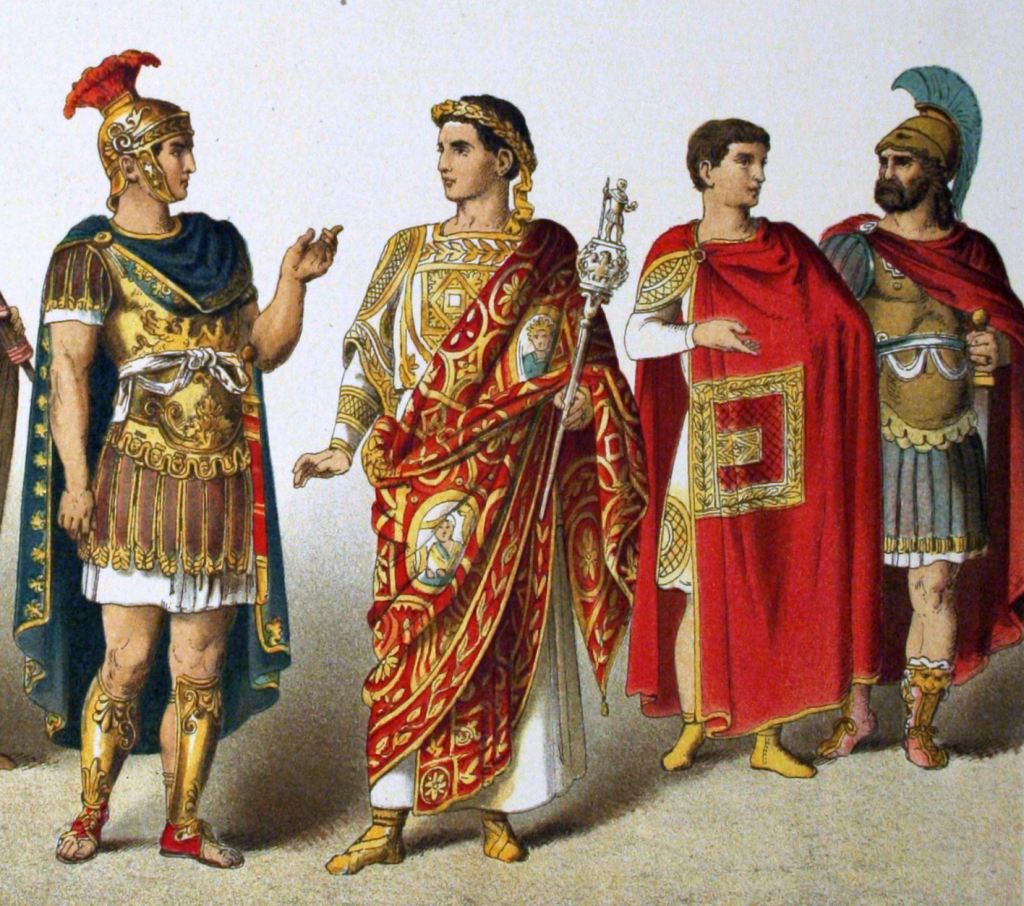When we think about Ancient Rome, we often picture grand gladiatorial battles, majestic architecture, and legendary emperors. But beyond what we learned in school, there’s a treasure trove of lesser-known facts that continue to fascinate us. Ancient Rome was not just a powerful empire but a complex society filled with intriguing traditions, unusual laws, and fascinating customs. Let’s dive into some of the most captivating facts about Ancient Rome that still capture our imagination today.
1. Women’s Rights Were a Complex Puzzle

In ancient Rome, women had limited rights compared to men, but there were ways they could achieve a degree of independence. One way was through becoming a Vestal Virgin, a priestess of the goddess Vesta. These women vowed to remain celibate for 30 years, and in return, they gained significant privileges: owning property, receiving a pension, testifying in court, and even pardoning prisoners. However, breaking the vow of chastity led to a brutal execution.
Another way for a woman to gain some autonomy was by having three or more children within a marriage. This granted her the right to inherit property and freed her from the guardianship of male relatives. Unfortunately, this law only applied for a brief period between the 1st century BCE and the 1st century CE, primarily to boost the dwindling upper-class population.
Video:Roman Quick Facts
2. Perfume: Not Just for the Skin

Romans were known for their love of fragrance. They didn’t just dab perfume on their skin; they also sprayed it throughout their homes — even from the walls of their luxurious villas. In a quest for inner and outer aroma, some Romans went as far as drinking perfume, believing it would make them smell good from the inside out. Perfumes also had medicinal uses, with some being applied to treat illnesses such as fever or digestive problems.
3. The Unusual Hair Coloring Rituals

Beauty standards in ancient Rome were quite rigid, and Roman women went to great lengths to achieve the desired look. Having naturally colored curls was seen as barbaric, so women spent hours creating elaborate hairstyles. To achieve luxurious black hair, they soaked leeches in vinegar for several months, creating a dark dye. Alternatively, to cover gray hair, they applied a mixture of earthworms and herbs overnight. These bizarre practices highlight the intense pressure Roman women faced to adhere to societal beauty norms.
4. False Doors for Aesthetic Balance

Romans were pioneers in interior decoration. To create an illusion of space or balance within a room, they painted false doors and columns on the walls. These artistic additions didn’t just serve a practical purpose but also demonstrated the Roman love for symmetry and grandeur. Imagine walking into a villa, only to realize that some of the doors were mere illusions!
5. Divorce Meant Losing Your Children

Divorce in ancient Rome was surprisingly straightforward, but the aftermath wasn’t so simple. In the event of a separation, the children would always stay with their father. If the father died, custody would pass to his nearest male relative, not to the mother. This patriarchal system also extended to married women, who remained legally under their father’s authority even after marriage. This unusual dynamic gave Roman women a certain independence, as their husbands didn’t hold legal power over them.
6. The Colosseum: More Than Just Gladiatorial Fights

When we think of the Colosseum, we picture fierce gladiators battling for glory. However, at times, this iconic arena became something entirely different — a swimming pool. During the reign of Emperor Domitian in 89 CE, the Colosseum was flooded to host mock naval battles known as naumachiae. These staged sea battles fascinated the Roman public and showcased the empire’s engineering prowess.
Video:
When we think of the Colosseum, we picture fierce gladiators battling for glory. However, at times, this iconic arena became something entirely different — a swimming pool. During the reign of Emperor Domitian in 89 CE, the Colosseum was flooded to host mock naval battles known as naumachiae. These staged sea battles fascinated the Roman public and showcased the empire’s engineering prowess.
Video: Insane Facts About Ancient Rome You Didn’t Know!
7. Gladiators Had Endorsement Deals

Gladiators weren’t just warriors; they were celebrities. Successful fighters became household names, attracting fans and even sponsorship deals. Some popular gladiators endorsed products, from olive oil to sandals, much like modern athletes promoting brands today. Being a gladiator was a dangerous career, but for those who survived, it offered fame and fortune.
8. Romans Had a Deceptive Sweet Tooth

While we enjoy sugar today, the Romans relied on honey to sweeten their foods. Honey wasn’t just a culinary delight but also a preservative and a medicinal ingredient. They often combined honey with vinegar to make a sweet-and-sour sauce, which was popular at Roman banquets.
9. Social Status Through Clothing

In Roman society, your clothes told your social rank. Senators wore togas with purple stripes, while ordinary citizens sported plain white. Roman women, particularly wealthy ones, adorned themselves with fine fabrics and elaborate jewelry to demonstrate their status.
10. Unusual Roman Hygiene Practices

Romans took bathing seriously, but their methods may surprise you. Public baths were not just for cleaning but also for socializing. The Romans used oil and a strigil (a curved metal tool) to scrape off dirt and sweat, as soap was not commonly used. Bathhouses were community hubs, where people discussed politics, did business, and caught up on gossip.
11. A Fondness for Pets
While dogs and cats were common pets, Romans also kept more exotic animals like monkeys, birds, and even snakes. These pets often reflected their owner’s wealth and social standing. Wealthy Romans sometimes kept cheetahs or lions as status symbols.
12. The Bizarre Food Choices
Romans were adventurous eaters. While wealthy citizens enjoyed dishes like dormice stuffed with nuts, poorer Romans ate simple meals of bread, porridge, and vegetables. The upper classes loved banquets, where unusual delicacies like peacock tongues and flamingo brains were served as a sign of luxury and sophistication.
13. Superstitions Guided Daily Life

Romans were deeply superstitious. They consulted augurs to interpret the will of the gods through bird patterns. Weddings, military campaigns, and even business ventures required auspicious signs to ensure success. A sneeze at the wrong moment could delay a journey, while finding a coin on the road was seen as a good omen.
Conclusion
Ancient Rome was a civilization brimming with contradictions — a society that valued both grandeur and brutality, innovation and superstition. While the grandeur of the Roman Empire often overshadows the peculiar aspects of daily life, these intriguing facts remind us of the human side of history. From their unusual hygiene practices to their complex social norms, the Romans left behind a legacy that continues to captivate our curiosity and imagination.


